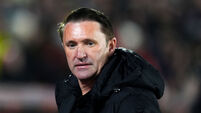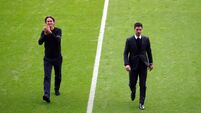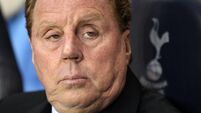TOMMY MARTIN: Qatari soft power to broker a European Super League?

But it felt that way when they were completing their expert filleting of Paris Saint-Germain on Tuesday night, condemning the French side to fume outside the Champions League VIP section for yet another season, waving their counterfeit tickets in the air, shouting “we paid good money for these!” It was strangely satisfying to watch PSG dissolve before our eyes from expensively-assembled, leather-upholstered luxury-club to huffy, demoralised rabble; the sight, it seemed, of the proper order of things being restored.
“You can’t buy the Champions League!” exclaimed 1,000 satisfied pundits, the annual humbling of the Qatari vanity project providing reassurance in a fast-changing world that some certainties — death, taxes, and the bludgeoning finality of a close-range Cristiano Ronaldo header — remain.














